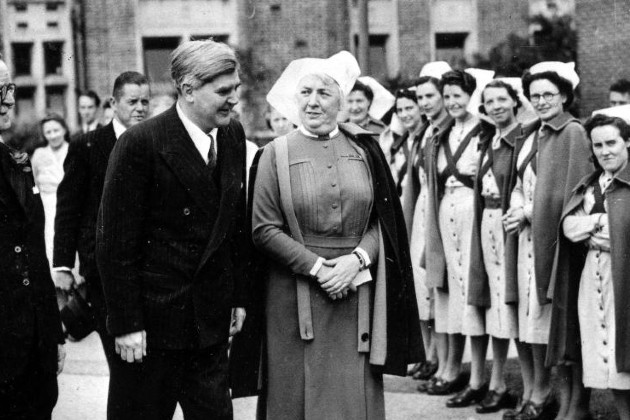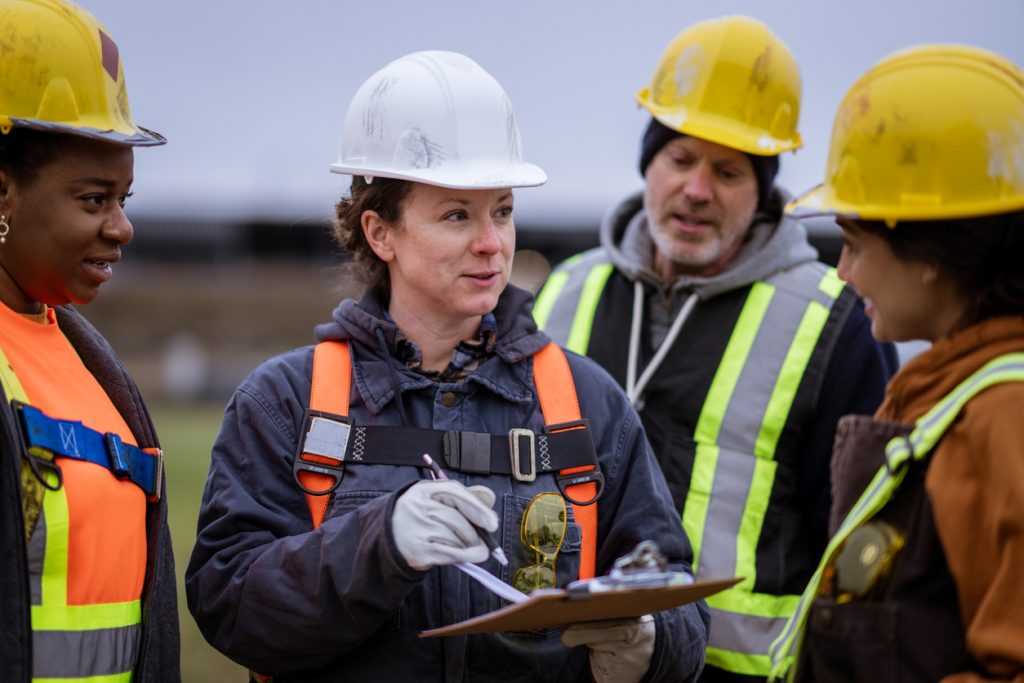The case for a National Occupational Health Service

Occupational health in the UK is inconsistent and reactive. Based on a recent (and excellent) report from the Fabian Society, we look at why reform is needed and what a better system could look like.
The forgotten part of Bevan’s vision
When Aneurin “Nye” Bevan helped create the NHS in 1948, he drew inspiration from the Tredegar Workmen’s Medical Aid Society. It was a model that supported working people directly and funded care through mutual contributions. That system included the workplace as a setting for health, not just treatment.

But when the NHS was launched, occupational health was left out of the picture. The focus moved to hospitals and GPs. What Bevan saw up close in Tredegar never made it into national policy.
The result is a gap that still exists today. We have a health system and a labour market, but little in between. That is Nye’s lost legacy.
The UK’s workforce is not getting the support it needs
Since 2010, the number of working-age adults reporting a disabling condition has increased by over four million. Around 300,000 people leave work every year due to ill health. Mental health issues have grown significantly, especially among women and younger workers.

Work is not always the cause, but it can be a major contributor. In 2023 alone, there were 1.7 million cases of work-related illness. Mental health was the main reason, overtaking musculoskeletal issues and physical injury.
The system we have to deal with this is limited. Fewer than half of UK workers have access to occupational health through their employer. Even where services exist, they are often underfunded and disconnected from primary care. Prevention is rare. Coordination is weak. The outcome is predictable. People fall through the cracks, and support comes too late.
The case for a National Occupational Health Service
A new Fabian Society report sets out a bold but practical proposal. It calls for a National Occupational Health Service. Not a new institution, but a coordinated approach that joins up employer provision, public support and clinical advice.
The idea is not to centralise everything. It is to make sure the right support is in place when people need it. That means setting standards, building capability and helping employers and clinicians work together.

The proposed system would be regulated by a new Occupational Health Authority, with funding from a health and skills levy paid by the largest employers. Employers would still deliver occupational health, but under consistent guidance and with clearer responsibilities.
For those not covered by employers, a new service would step in. Caseworkers based in NHS neighbourhood centres would coordinate tailored support. This includes people at risk of leaving work, those in lower-paid or insecure roles and the self-employed.
Changing how we think about responsibility
One of the report’s most important messages is that occupational health is not just a service. It is a shared responsibility. Employers, the NHS and workers themselves all have a part to play. But that only works when everyone has the tools and incentives to act.
The proposals include:
- A right to a healthy work conversation with your employer, including the option to be accompanied.
- A revised fit note that allows clinicians to flag occupational health as part of recovery.
- A requirement for employers to consult with occupational health before refusing workplace adjustments.
- Improved access to flexible work and better tracking of work-related illness.
- Higher statutory sick pay that reflects the real cost of living and allows phased returns to work.
When combined, these steps would make it easier to stay in work while managing health issues. They would also reduce the number of people forced to choose between their income and their recovery.
From vision to action
The report is clear that this will take time. Reforming occupational health is a long-term project. But some actions could start now. Sick pay can be increased. Fit notes can be improved. Pilots for public caseworker support can be launched. Digital systems that track absence and enable early support can be built. Employers can start using shared standards and better data.
If these foundations are laid now, the UK can move towards a national system that works. Not just to treat illness but to prevent it. Not just to support return to work but to stop people leaving in the first place.
Rebuilding a legacy
The idea of joining up work and health is not new. It was part of the original vision that helped shape the NHS. What is new is the scale and urgency of today’s challenge. More people are living and working with complex conditions. Mental health needs are growing. Job insecurity and demographic shifts are adding pressure. The old way of doing things is not enough.

Rebuilding Bevan’s lost legacy means recognising that good work can be part of good health. It means acting earlier, coordinating better and giving workers and employers the tools to succeed. A National Occupational Health Service would not replace what already exists. It would strengthen it, connect it and make it work.
A healthy approach to recruitment
If your organisation is thinking about long-term workforce health, we are always happy to talk. Whether it is hiring, retention or recovery, we work with clients who want to get it right from the start. Recruiting Heads is a specialist recruitment partner for Occupational Health, Workplace Wellbeing, Health & Safety and Digital Health. Led by Sean and Abi McMullen, we combine deep sector knowledge with a candidate-first approach. We help healthcare leaders fill senior roles fast and with care. We keep our client list short intentionally. When you work with us, you work directly with Abi and Sean. Two recruiters who know the sector inside out.
Where to Next?
More Articles
Right people, right roles, always
Whether you’re hiring or job hunting, we make your search straightforward, effective and discreet.



